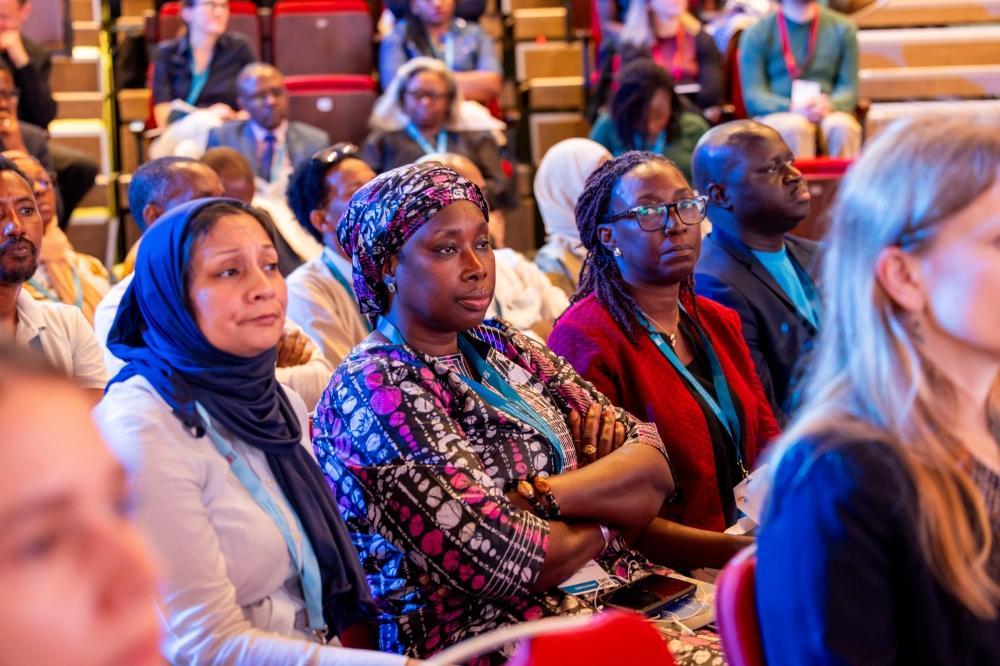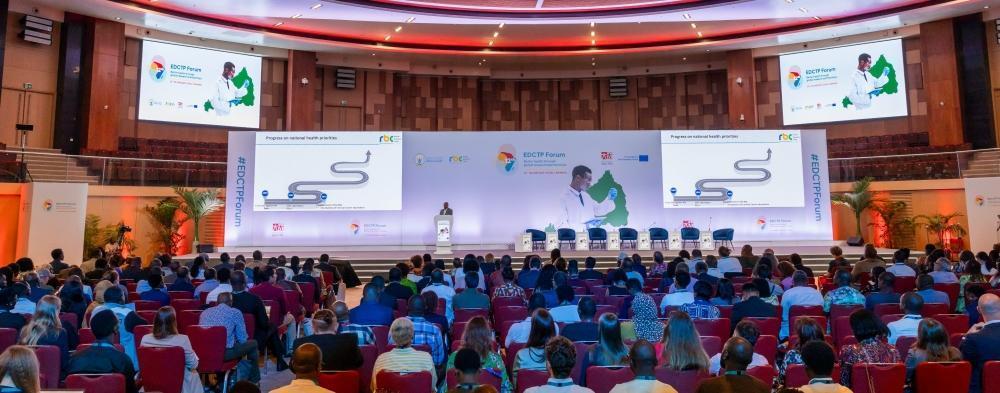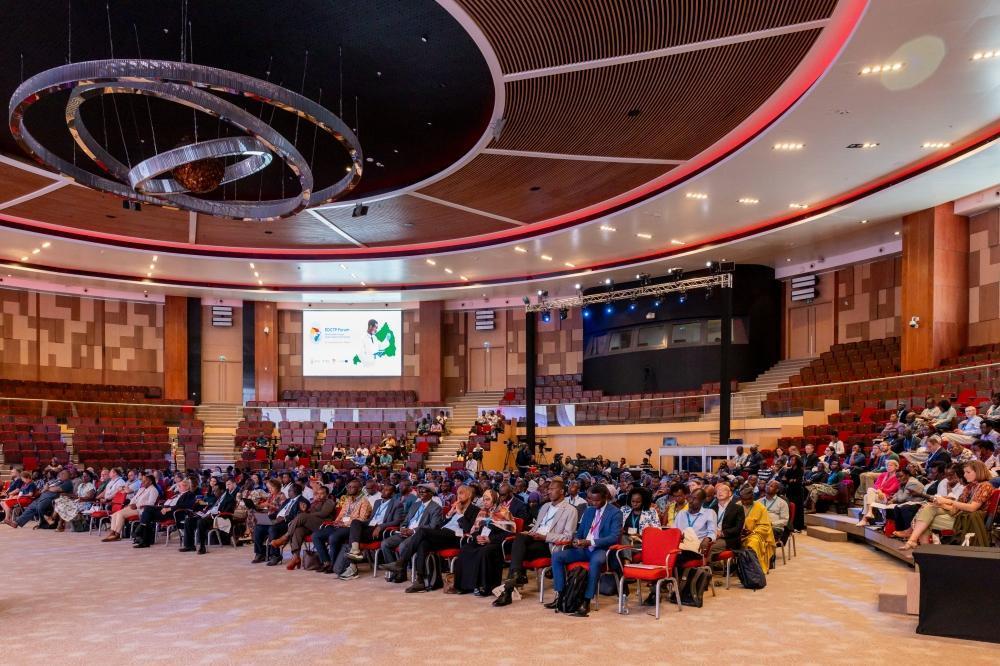Africa-Press – Rwanda. To increase Africa’s contribution to global research, especially from young researchers, Dr Sabin Nsanzimana, the Minister of Health, said that there should be tailored capacity building and investment in the ecosystem.
He made the remarks at the 12th EDCTP Forum, an international platform for presenting and discussing cutting-edge research addressing the burden of poverty-related and neglected infectious diseases in sub-Saharan Africa, which opened at the Kigali Convention Centre on Sunday, June 15, running until June 20.
Themed “Better health through global research partnerships,” the forum convenes diverse stakeholders, including representatives from research institutions and universities, the scientific community, healthcare providers, government officials, regional bodies, regulators, civil society, and public and private research and development partners.
The forum was held under the theme “Better health through global research partnerships,”
Nsanzimana noted that the disease burden in Sub-Saharan Africa is almost 25 per cent of the global diseases, yet the continent, with 20 per cent of the global population, produces only three per cent of the global clinical trial research. The contribution was two per cent 10 years ago.
“As we talk about research and partnership, as we talk about addressing disease from the root causes, diversity in genetic differences, in communities that live on this continent and beyond, we also need to have this balance in representation of research.”
He said that this can only be possible if young people are trained, starting with basic research to do small steps towards addressing this legacy of gaps, to something that is not only for the continent but the world, because there’s no border when it comes to diseases.
“How do we make sure we know, understand, work together, do research, design solutions, develop laboratories and clinical research centres, and develop regulatory processes that are tools to help move faster and not just to delay processes?” the minister asked.
The forum convenes diverse stakeholders, including representatives from research institutions and universities, the scientific community, healthcare providers, government officials among others
“How do we fund all these initiatives, prioritise investment in people, hospitals, and schools? How do we share and publish our knowledge together?” he said, noting that these are the questions that the discussions will revolve around during the forum.
Nsanzimana added that Rwanda is committed to making its contributions to different pillars to make sure that the continent moves from three per cent to 20 or 50 per cent because solutions to global problems can come from anywhere.
“We have talented young people who can create a new vaccine for tomorrow from Rwanda, a new drug that we don’t have for cancer can originate from Lagos, Djibouti, Malaysia, or anywhere in the world,” he said. “We just need to support these young people, train them well, and put in place frameworks that are going to help them work.”
Constance Assohou-Luty, Team Lead for Research at the World Health Organisation’s African Regional Office, maintained that the strength of African health systems lies in the capacity and ability to generate and use local evidence to solve local challenges.
“To nurture future generations of African research leaders, the partnership in alliance with TDR [the special programme for research and training in tropical diseases] has brought together initiatives to support research projects across the continent and career development programs for multiple African countries.”
She added: “A reliable, efficient, and people-centered clinical research ecosystem requires a strong backbone. Functional ethics and regulatory frameworks are essential components of such a backbone.”
Assohou-Luty noted that the focus should be strategic priorities, including capacity building for health workers, advancing scientific research in priority areas, strengthening primary healthcare systems and leveraging technological innovation to reinforce health systems are key pillars of advancing the overall goal of better health for all.
“As Africa progresses in its ability to lead and own all aspects of the clinical research lifecycle, supporting translational research becomes imperative,” she said. “Therefore, facilitating linkages between researchers, their institutions, industrial partners, and governments will greatly help to address this concern.”
Henning Gädeke, the Chair of the EDCTP Association Board and Chair of the Global Health EDCTP3 Joint Undertaking Governing Board, said that this forum comes at a time where it should showcase why research for global health must play an important role as the European Commission will present its proposal for the 10tht EU Research Framework Programme.
“It makes it possible for the EU, the European states, and the states from sub-Saharan Africa to provide joint funding, and there is also the opportunity to involve philanthropic organisations and industry in the funding. In this way, forces are pooled in the interests of a common cause. This requires the highest possible level of political support.”
Considering global political priorities shift, he asserted that it is even more important that Africa and Europe work together to ensure that the successes in global health and research are not jeopardized.
“It must be clear to everyone that research for global health is not a nice-to-have but that it affects the health and lives of millions of people,” Gädeke said.
For More News And Analysis About Rwanda Follow Africa-Press








